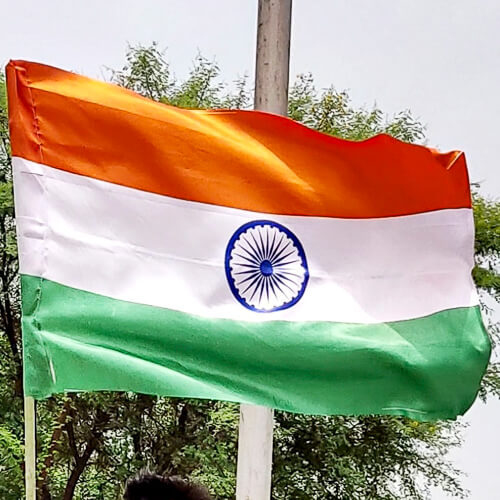Vedanta-Foxconn plant boosts India's chipmaking industry
Government's PLI scheme-driven new announcements, like Vedanta-Foxconn $20 billion plant, have given a much-needed fillip to the Indian chipmaking ecosystem.

Anil Agarwal-owned Vedanta Group, in collaboration with Taiwan's Foxconn, has decided to set up a large semiconductor unit in Gujarat, India, with an investment of around $20 billion.
The announcement comes as a big boost to the country's ambition to create a domestic semiconductor ecosystem, which has failed to take off despite many earlier attempts.
India is entirely dependent on overseas manufacturers for semiconductors, as it imports 100% of its chips from Taiwan, Singapore, Hong Kong, Thailand and Vietnam.
Figure 1:  The Vedanta-Foxconn plant announcement has given a much-needed boost to the Indian chipmaking ecosystem.
The Vedanta-Foxconn plant announcement has given a much-needed boost to the Indian chipmaking ecosystem.
(Source: Imaginechina Limited/Alamy Stock Photo)
But increasing need and recent supply shortage has forced policymakers to revive attempts to build a semiconductor manufacturing ecosystem in the country.
The Indian semiconductor market was estimated at $15 billion in 2020, and is tipped to reach $63 billion by 2026, driven by wireless communications, consumer and automotive electronics.
Performance-linked incentive (PLI) unveiled
In December 2021, the government announced a special scheme involving the disbursement of $10 billion in incentives to manufacturers setting up chip units in India.
Companies producing 28nm nodes or below are eligible to receive 50% of project cost. Those setting up fab units for 28nm-45nm nodes will get 40%, and those manufacturing 45nm-65nm chips will get 30% of the project cost.
The scheme also offers design-linked incentives (DLI), with up to 50% of expenditure and a limit of $2 billion per application available, and 4-6% on net sales turnover for over five years with a cap of $4 billion.
The PLI announcement did arouse interest from global chipmakers. As a result, the government informed parliament in July 2022 that as many as 23 applications were received under the scheme.
In fact, five companies submitted proposals for setting up manufacturing units with an investment of $20 billion.
Flurry of announcements
Meanwhile, a bunch of global players – some in collaboration with local manufacturers – have already announced setting up chip manufacturing plants in the country.
Even before the announcement by Vedanta-Foxconn, international semiconductor consortium ISMC, a joint venture between Abu Dhabi-based Next Orbit Ventures and Israel's Tower Semiconductor, had announced investing $3 billion in the state of Karnataka to set up a chipmaking plant.
Singapore-based IGSS Ventures also plans to build a hi-tech semiconductor park that includes a fab unit in the state of Tamil Nadu atrepresenting an investment of over $3 billion.
A surprise name in the list is Rajesh Exports, which is in the jewelry-making business, and has no prior experience in chip manufacturing. However, through its recently incorporated arm Elest, the jeweler has announced it is investing $3 billion in Telangana to set up an electronic-display plant.
Want to know more? Sign up to get our dedicated newsletters direct to your inbox.
A few startups have also come forward to be part of this race, for example, AGNIt Semiconductor Pvt Ltd, a Bengaluru-based IISC-incubated startup.
To the government's credit, it has been successful in creating a lot of interest among global and local players. However, only time will tell how many survive to help India emerge as an alternative chip manufacturing destination.
Having a chip manufacturing unit will help the country reduce its export dependence, and is in line with the principles of Atmanirbhar Bharat (Self-Reliant India).
India is not the only country to promote this. China came up with the Made in China 2025 initiative back in 2015 with the aim of achieving 70% self sufficiency by 2025.
Japan is also trying to acquire chipmaking capabilities. The shortage after the outbreak of the pandemic drove several countries to promote domestic chip manufacturing.
Related posts:
— Gagandeep Kaur, contributing editor, special to Light Reading
Read more about:
AsiaAbout the Author(s)
You May Also Like












